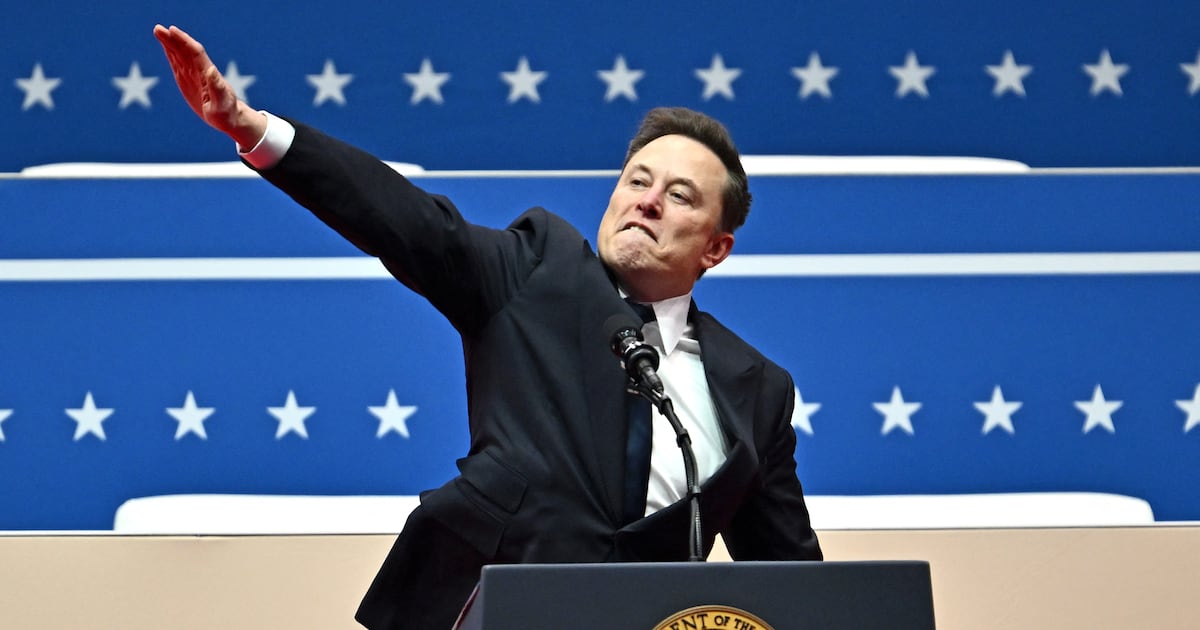ROME—Americans may love their fentanyl, a powerful opioid responsible for a public health crisis and countless accidental overdose casualties, including those of pop stars Prince and Tom Petty. But terrorists apparently prefer tramadol, a cheaper numbing opioid that is legal in the Middle East. And they are getting plenty of it on the black market thanks to Italian ‘Ndrangheta mobsters, according to Italy’s financial police. In the last year alone, the cops have confiscated nearly 100 million tramadol tablets meant for ISIS operatives in Libya.
Once in Libya, the pills are used to pump up fighters there, or they’re smuggled into Egypt and Syria, or they are sold to Boko Haram fighters in Nigeria, according to Marta Sarafini, whose recent exposé in the Italian daily Corriere della Sera unravels the tramadol trade. “They end up in the hands of the desperate in Gaza, the prostitutes in Amman, and child laborers in Turkey,” she says. “They are the drug for anyone who wants to escape misery.”
They may also find their way into the American market, and with a vengeance. The barriers are low.
On the Drug Enforcement Administration’s list of “scheduled” drugs, or “controlled substances,” where heroin, LSD and, yes, marijuana are Schedule I; fentanyl is among those listed as Schedule II; ketamine and Tylenol with codeine are Schedule III, tramadol is only Schedule IV: a substance with “a low potential for abuse relative to substances in Schedule III.”
As the Wall Street Journal reported in 2016, tramadol is “the opioid crisis for the rest of the world.” And the combination of low penalties in the U.S., the organized peddling by the mob, along with the financial needs of the embattled “Islamic State” create a situation ripe for organized crime to push tramadol as a new drug of choice for opioid addicts.
In Europe and North Africa, peddling the pills, which have a street value of around $5 a piece, is fast becoming one of the Calabrian ‘Ndrangheta crime syndicate’s most successful enterprises. Gaetano Paci, an anti-mafia prosecutor in Calabria, confirmed the narcotic trafficking links between the deadly Calabrian mob and terrorist groups late last year after a third shipment of millions of tramadol tablets was discovered in the southern Italian port of Gioia Tauro, widely known as the mafia gateway for all things illicit.
The sprawling Calabrian mafia port has been at the center of a number of recent raids where everything from stolen antiquities to dead bodies have been found hidden in cargo crates. The average daily value of contraband and trafficked materials suspected to be run through the port is estimated to top $1 million, according to Italy’s finance police. Most of the illegal goods are hidden in shipments of pineapples, frozen fish and coconut milk, which often are rushed through because of their shorter shelf life.
(The port, the largest in Italy, was also the curious choice by the Organization for the Prohibition of Chemical Weapons (OPCW) to facilitate the 2014 transfer of 700 metric tons of Syrian chemical weapons and their precursors, which were delivered, transferred and eventually neutralized on board the U.S. Navy ship Cape Ray. Some speculated that the port was chosen because of the apparent high surveillance by police thanks to mafia activities. Others speculated that if something went awry, they could just blame it on the mob. Nothing went wrong with the Syrian weapons operation, at least as far as anyone knows.)
Italy’s anti-drug trafficking agency estimates that 80 percent of all Europe’s cocaine comes in from Colombia through the Calabrian port, which is also the main hub for illegal weapons, so it is little wonder it would be the port of choice for those pushing terror narcotics, too.
Gioia Tauro is now the main gateway for tramadol brought in from pill mills in India and Sri Lanka redistributed to ISIS in Libya, according to Paci, who says the 24 million pills found hidden in a fabric shipment in November were easily worth €50 million. They have also found smaller shipments of Captagon, another widely used psychostimulant known as chemical courage, which, unlike tramadol, is illegal in the Middle East and North Africa.
“Everything passes through Gioia Tauro, so it comes as no surprise to find a trafficked substance of this kind there,” he told the Italian daily La Repubblica recently. “For a while we have known about ties between ’Ndrangheta and organizations in the Middle East. Even if the port has become a less secure zone for the clan, thanks to the pressure from investigations, we have traced some trafficking links and are trying to put the dots together.”
Similar shipments had been sequestered in Greek ports in 2016 and 37 million pills were hidden among shampoo bottles arriving by container in Genoa in northern Italy in early 2017, all destined for a distributor in Libya who has since been proven to be affiliated with Islamic State militants there, Paci says.
Most of the pill mills are in Sri Lanka and India, but there are known manufacturers of tramadol and counterfeit Captagon, another widely used psychostimulant known as “chemical courage” in Bulgaria and Turkey.
Paci points to the fact that tramadol was found in the apartments and bodies of the terrorists who attacked the Bataclan in 2013, and in the beach massacre in Tunisia in 2015, as a worrying factor.
Tramadol, when mixed with components like caffeine, has the same effect as a powerful amphetamine, erasing fear, pain and fatigue and altering the senses. Paci’s team is concerned that the recent spike in pills coming through Calabria may mean ISIS fighters are preparing for more attacks or supplying others, like Boko Haram militants, to rain down terror in Nigeria.
“They are certainly not intended for the Libyan people,” a source close to the Italian anti-drug investigations told The Daily Beast. “They will be used by the fighters or sold by them.”
On Wednesday, the Guardian reported that Interpol has identified 50 foreign fighters who have come into Italy through Libya on the migrant trail in the last year, apparently ready to launch new attacks in Europe. A day later, Europe’s border patrol agency, Frontex, launched a new operation called Themis, named after the Greek goddess of law and order, under which they said they would employ an “enhanced law enforcement focus.”
“We need to be better equipped to prevent criminal groups that try to enter the E.U. undetected,” Executive Director Fabrice Leggeri said in a statement. “This is crucial for the internal security of the European Union.”
Rita Santacroce, head of the Research Centre on Security and Crime in Vicenza, Italy, is leading a study called NarcoMap about the new terrorism drug trafficking trade. She told The Daily Beast that Europe is increasingly involved in narco-terrorism in three distinct ways. “As a manufacturer of psychoactive substances, as a route of their trafficking, and as a designated victim of the terrorists—often intoxicated by drugs that may come from the very same place they aim to destroy.”






